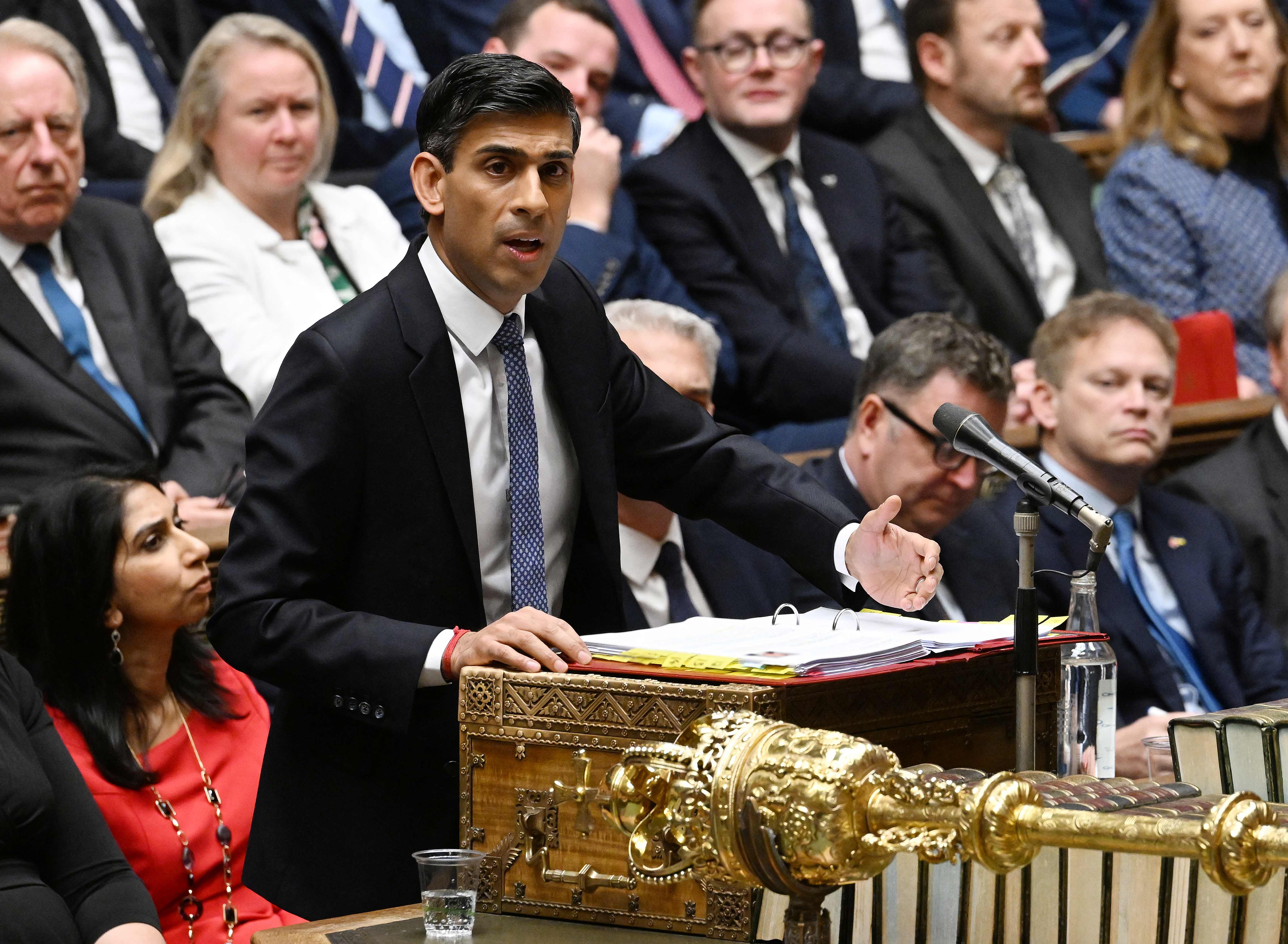The tide has turned for Rishi Sunak
He may have won all three arguments at PMQs, but it doesn’t matter, writes John Rentoul


Keir Starmer failed to get past Rishi Sunak’s defences in the Commons today. The Labour leader called the prime minister a blancmange for giving in to his backbenchers by dropping compulsory national targets for house-building. A blancmange? What is that? Well, it wobbles and then “does a grubby deal with his own MPs”. It is a perfect analogy.
But Sunak threw back Gordon Brown’s plans – unveiled by Starmer only on Monday – to give local people more say. This is the problem with easy slogans. Everyone wants more houses, and everyone also wants more local democracy. The job of the opposition is to pretend such conflicts don’t exist; the job of the government is to resolve them, and to arrive at a reasonable compromise. Which is roughly what Sunak has done, so Starmer lost that argument, but he put on a good show of pretending he hadn’t, which is half the battle.
Starmer switched subject for questions four and five, regarding allegations that Baroness Mone, a Conservative peer, had ended up benefitting from coronavirus contracts. Sunak sounded less comfortable. He was “absolutely shocked” when he read of the allegations; but he said that Starmer is a lawyer so he will understand that there is a process and that it would be wrong to comment. And besides, Lady Mone has left the House of Lords, so she doesn’t take the Conservative whip anymore – although a No 10 spokesperson had earlier refused to say if she was still a Conservative.
Later, in answer to further questions from Labour backbenchers, the prime minister added more layers of defence, namely “remember the context”, which was that there was a mad scramble for personal protective equipment; ministers didn’t make the decisions; and Rachel Reeves, the shadow chancellor, had recommended suppliers too.
Strictly speaking, Starmer lost that argument too, because he should be assuming that Lady Mone is innocent unless she is proven guilty, but it was easy enough for him to pretend that he had won. “He is the chancellor who signed the cheques,” Starmer said, ignoring what Sunak had said about ministers not actually making the procurement decisions, safe in the knowledge that most people in the country hold him responsible for the shocking amount of fraud in Covid contracts.
In between asking his questions, Starmer managed to lose a third argument with the prime minister, who abused his position to ask the leader of the opposition a question, about whether Labour would support anti-strike legislation “to protect working people”.
Starmer was surprised to hear that the government was actually going ahead with the legislation, which Mark Harper, the transport secretary, had this morning said wouldn’t work. Starmer quoted Harper’s words: “It’s clearly not going to help with the industrial action we’re facing.”
To keep up to speed with all the latest opinions and comment, sign up to our free weekly Voices Dispatches newsletter by clicking here
Harper is right. A law to require minimum service levels would be hard to enforce, which is why Conservative governments over the decades have decided against bringing it in. It is a mere party-political trap, allowing Sunak to challenge Labour on whether they would support or oppose something that can be presented as protecting people from disruption over Christmas – which is the point at which the unions risk losing public support.
Finally, Starmer asked a question that wasn’t trying to make a partisan point, about Strep A, which prompted an answer that wasn’t trying to make a partisan point, namely that the government was doing all it could to make sure that parents know what the symptoms are, and that there was no shortage of antibiotics to treat it.
The Commons heard the question and the answer in respectful silence, in sharp contrast to the sectarian hullabaloo that dominated the rest of the session.
The thing about a sectarian hullabaloo, though, is that it is useful for concealing who has won and lost the actual arguments. On this occasion, Sunak won all three, but the tide has turned against him, and most voters think he is rich, out of touch and unable to manage a divided party. Even if they don’t actually think he is a blancmange.
Join our commenting forum
Join thought-provoking conversations, follow other Independent readers and see their replies
Comments
Bookmark popover
Removed from bookmarks